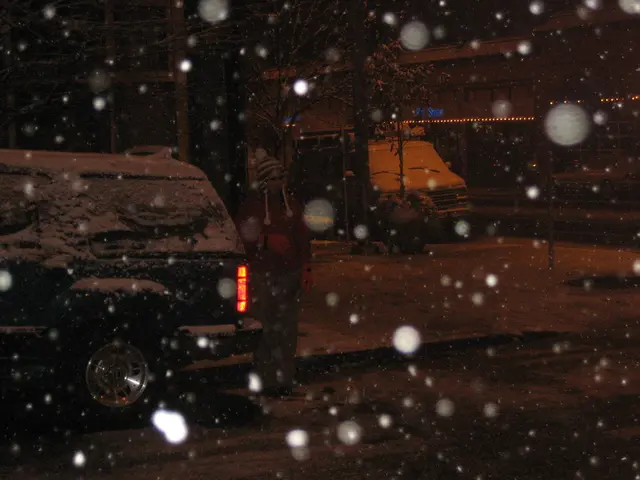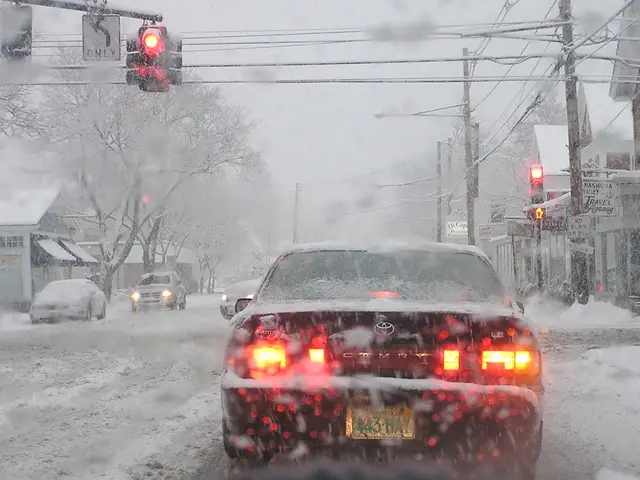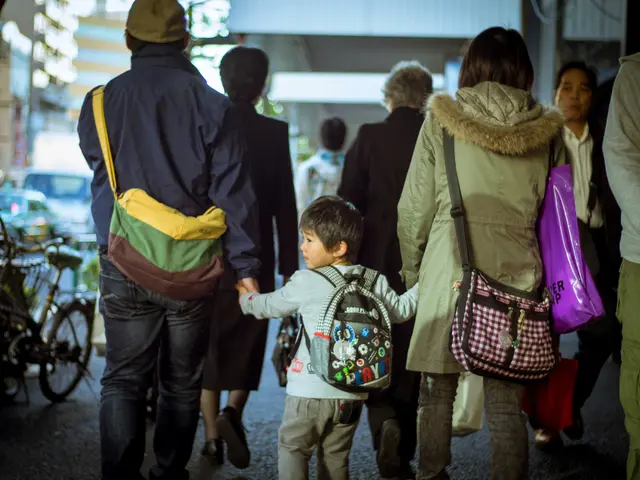Education department disbanding by Trump empowers states to initiate scholarship programs.
In the contemporary landscape, traditional red states are witnessing an expansion of school voucher programs, a trend that's poised to skyrocket with the encouragement from President Donald Trump's administration to hand education back to the states.
Conservative education advocates hail these programs as a means to provide greater control to parents and families. However, public education supporters caution that the escalation of these voucher programs poses further risks to the overall school system, already battling from challenges posed by Trump's dismantling of the Department of Education.
"Many states came into this administration with a track record of trying to privatize education, and I think they see this move to dismantle and defund the Department of Ed and President Trump's support of school privatization as a green light to be more expansive in their approach moving forward," says Hilary Wething, an economist at the Economic Policy Institute who closely studies the impact of voucher programs on public education.
In the past week, Texas has enacted a statewide private school voucher program, joining 15 other states offering some form of universal school choice program. These voucher programs empower families to receive public funds that can be used for private K-12 school tuition or school supplies, without restrictions on who is eligible-a feature that proponents refer to as "universal voucher" programs.
In the 2026-27 school year, Texas' program is set to launch. While these statewide voucher programs are not novel, they have proliferated in recent years due to a growing conservative political push to boost "school choice"-the idea that parents should have a multitude of options beyond their neighborhood public schools.
At least 16 states currently offer at least one voucher program with universal eligibility, with 14 offering voucher programs with eligibility requirements. In the recent year, Texas, Idaho, and Tennessee have enacted their universal programs, while conservation lawmakers in eight other states have faced stalled or failed attempts to create new voucher programs or expand existing ones.
"Even though this is not a new explosion of voucher laws, this year continues the explosion of vouchers... and even though the USDOE isn't necessarily the one driving force, it's definitely connected," explains Jessica Levin, the litigation director at the Education Law Center, which is assisting with lawsuits challenging Trump's moves to dismantle the Department of Education.
Detractors of voucher programs argue that they divert public funds from supporting public schools and deliver them to private schools, escaping many accountability requirements under federal laws. Private schools retain the power to refuse admission to students, provide no individualized education plans to children with learning disabilities, and are not obligated to provide protections or due process rights to disabled students or students facing disciplinary measures.
While funding formulas for public schools primarily rely on enrollment numbers, funding decreases as students flee public schools, even in small numbers.
"The students who remain in public schools lose resources, while 'voucher students lose rights'," Levin states, adding that voucher-driven student departures from public schools mean "you're now concentrating higher-need, higher-cost kids in public schools that now have less funding."
This situation is exacerbated by Trump's initiatives to wind down the Education Department, which experts argue will further upend civil rights enforcement in schools and the distribution of billions of dollars to help impoverished and disabled students.
U.S. Department of Education spokesperson Savannah Newhouse stated in an email to NBC News that "President Trump and Secretary [Linda] McMahon believe that our nation's students will thrive when parents are given the freedom to choose a school setting that best fits their child's academic needs."
The trend toward greater school choice is set to continue, as conservative politicians and activists capitalize on frustration over local public schools, particularly in the context of the Covid-19 pandemic. Supporters of voucher programs advocate for their ability to maximize choices for parents, offer a market-based approach that helps promote high-quality schools, and potentially benefit low-income families or families with limited public school options.
Critics, however, caution that universal school voucher programs are disproportionately utilized by wealthy families whose children are already enrolled in private schools or have higher incomes. Furthermore, these programs may not offer enough support for low-income families to afford private school enrollment.
Analyses indicate that 60-90% of students who take advantage of universal-eligibility voucher programs across the U.S. were already enrolled in private schools when they participated in the programs.
The rapid expansion of school voucher programs amid the Trump administration's push for state-level education control raises concerns about equity and the distribution of resources within education systems.
- The expansion of school voucher programs in traditional red states is being encouraged by President Trump's administration, leading to further privatization of education.
- Hilary Wething, an economist at the Economic Policy Institute, warns that the escalation of these voucher programs poses risks to the overall school system, already struggling due to Trump's dismantling of the Department of Education.
- Texas has recently launched a statewide private school voucher program, joining 15 other states with some form of universal school choice program. These vouchers allow families to use public funds for private K-12 school tuition or school supplies.
- The trend toward greater school choice is set to continue, with conservative politicians and activists promoting voucher programs as a means to provide more options for parents and potentially benefit low-income families.
- Critics argue that universal school voucher programs may not offer enough support for low-income families to afford private school enrollment, and are disproportionately utilized by wealthy families.
- The rapid expansion of school voucher programs raises concerns about equity and the distribution of resources within education systems, with experts warning that it may further upend civil rights enforcement and the distribution of funds to help impoverished and disabled students.








